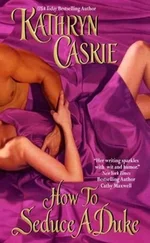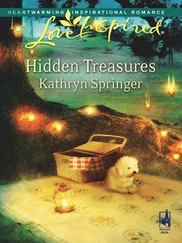This time nothing was taken away. This time something was added.
The girls were all fine.
It was a fine evening and they were exercising their legs in the space that had opened for them between the beginning and end of time. To their families it looked like they were sitting at the dinner table, using their forks to twirl spaghetti or chase a meatball around and around the plate. What a wonderful thing it is to have a daughter, the fathers were thinking; the mothers were amazed but critical. The white girl could never keep herself clean, the roan had to watch her weight. The king’s granddaughter’s teeth needed straightening. The albino girl was allergic to everything. This was only true at the dinner table — otherwise they were without flaw. The plain they raced across extended uphill to a walled city with a tower and downhill to the seashore, where each summer for a month or so their families rented cottages with a view of the water.
You never know what you’re going to find in a rental cottage, Janice said. Once she found a rosary sewed to the bottom of her mattress. Once she found a miniature golf pencil, a pair of stained underpants, and a piece of paper with “clams” written on it in her bureau drawer. Once someone used a Reader’s Digest condensed book about a girl named Stephanie who was the same age as her brother and who died of leukemia to prop open the bathroom window. Last summer there was a conch shell on the kitchen counter with its animal still inside, the exact size and weight of a human thumb.
The man in number 37 wrote a book about shells, someone said.
He was famous, said the curly-haired girl. He won some prizes and then he moved away.
No one ever thinks their stay anywhere is going to be cut short, Janice replied, and everyone knew she was thinking about her brother.
Shadows moved around all over the plain but if you tried to see what was casting them there was nothing there. The four horsewomen cast no shadows — they never do. This is how they differ from the four horsemen. They cast no shadow, they leave no hoof prints. The evil they bring is harder to pin down, often seeming more good than evil. One of them loves to fatten you up with butter and cream so you’ll turn out fatter than she is. Flattery is involved. Filth weighs down the crimson drugget, the blind slats — no one gets things cleaner! No one is more beautiful either — if only you weren’t depressed. The pale one is the best nurse ever. You’d better not get better or she won’t have anything to do.
They can show up anytime, Janice said, in any group. The only way to stop them is if the horse parts get the strangles. Like a lighthouse she rotated her head in one smooth mechanical operation, the beam of her gaze landing on each of us in turn. Then to everyone’s amazement she reached into her pocketbook and came up with a pack of cigarettes, took one out, lit it, and began to smoke.
What about the sorcerer? someone asked.
What about him? Janice sounded irritable. She blew smoke rings and consulted her wristwatch, busy giving the impression of being a busy person — a busy woman —with things to do, places to go, a whole life to live that had nothing to do with any of us.
Once those four get loose even a sorcerer can’t do a thing to change the course of events. Like the woman in number 50 who jumped in front of a train last Easter — everyone knew the story. She had been a young mother of two; her husband worked in the city and she stayed home with the children. All the parents agreed she was a devoted mother and an excellent homemaker. Their house was the last one on the street and it had a large side yard that she kept neat as a pin. Not long after the family moved into the neighborhood the husband planted a tree in the middle of the yard and staked it with wires. No one was to blame — these things happen, like the cocker spaniel in number 21 who ran out in front of the bread truck or the man in number 30 who woke up one day and couldn’t move his legs. Like all the kids absent at school — more every day. If the little boy had told his mother when he cut his stomach on the wire maybe things would have gone differently. But he kept it a secret. And then he got lockjaw and died.
No he didn’t, someone said.
I heard she was fooling around with the man in number 52, said someone else.
Fooling around, said a little sister, and all the little sisters began to giggle.
If you’re so smart why don’t you tell the story? Janice asked. She ground out the cigarette under the heel of her loafer. It was starting to get dark; it got dark earlier and earlier with the approach of the holidays. As if to reinforce this fact the street lamp came on at the exact moment that a white car with a salmon-pink roof pulled up alongside the curb. I’ve got to go now, Janice said, reaching into her pocketbook for a tube of lipstick. The boyfriend kept the engine idling while he rolled down the window — the light from the street lamp reflected off his eyeglasses and made him look like a lemur. He was wearing the kind of hat worn by a father or a gangster in the old movies. A lemur in a hat — that’s what he was.
Hey! the boyfriend yelled. I haven’t got all day!
Janice applied her lipstick and blotted her lips on a hanky. Two-tone, she said, pointing at the car, the idea being that two-tone was about as good as it got. Then she climbed into the car without so much as a single backward glance even though everyone knew she was never coming back. It didn’t matter that the boyfriend was funny-looking. The important thing was to have a boyfriend. Once you had a boyfriend you were safe — you’d passed the test. Until then everyone was still too young to know for sure.
That was why she told us to look up, someone said. It was a test. It wasn’t like there was anything special up there.
I could do it, said someone, tilting her neck by way of demonstration. The night was full of the usual things — a silver moon, some winking stars, a blue-lit scow, the mica-flecked wings of the raptors.
Did you see who couldn’t? asked someone else.
I didn’t have to see to know, someone said, and it was like everyone knew who she was talking about.
Once you’re married you’re safe, said someone else. When you’re married that means you’re really a girl.
I’m never getting married, said the curly-haired girl.
Everyone except her got up and started back home for dinner.
The curly-haired girl stayed on the bench and looked out into the dark seething ocean of park just beyond the sweet yellow tidepool of the street lamp.
All at once she was granted a vision. She saw three things. She saw a lightning bug she wanted to catch but didn’t. She saw a flame-colored bird with two sets of wings flying straight up into the air. The higher it flew the more hungry she was for love. She wished for a baseball bat to knock the bird out of the sky; she wished for a baseball cap embroidered with a boy’s name in gold. Third, she saw something far away on the other side of the park. The harder she tried to see what it was, the faster she began to move. She could hear the sound of her hooves on turf, moving fast, at a canter.
MISS VICKS HAD BEEN HEADED IN THE SAME direction for a long time now, following the wall. The wall was about as tall as she was, making it hard for her to see what was on the other side. Every now and then, though, she’d get enough of a glimpse to know that the other side consisted of the same rolling landscape marked at intervals with the same barbed gray-green shrubs she was forced to avoid on her own side of the wall, calling the whole point of the wall into question. The shrubs were century plants — she’d done a unit on them around the time Mary and Eddie had been in her classroom. A century plant stayed alive as long as it took to produce one six-foot-long flower stalk and then it died. A kindred spirit, Marjorie thought.
Читать дальше












